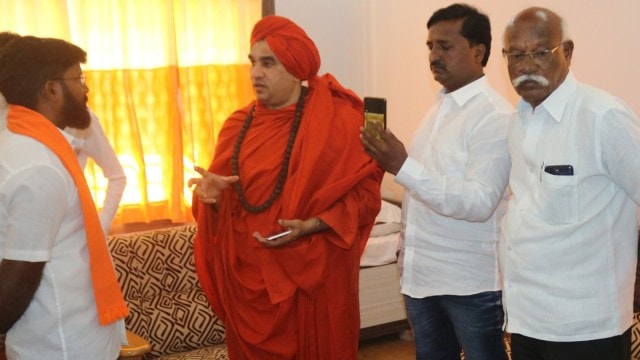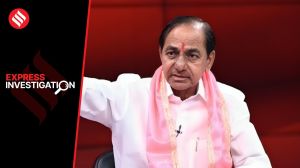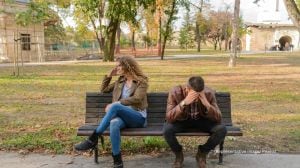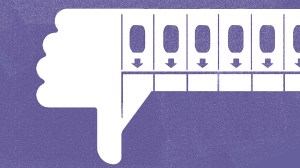Panchamasali Lingayat council asks Karnataka govt to clarify legal stand on OBC quota demand
Inclusion in the OBC 2A category will allow the Panchamasali Lingayat community to benefit from 15 per cent quota in government jobs and educational opportunities
 The Panchamasali Advocates Council has also asked Karnataka Governor Thawarchand Gehlot to facilitate a discussion on the demand for the Panchamasali OBC quota in the state legislature. File photo/X/@Ailpmkarnataka
The Panchamasali Advocates Council has also asked Karnataka Governor Thawarchand Gehlot to facilitate a discussion on the demand for the Panchamasali OBC quota in the state legislature. File photo/X/@AilpmkarnatakaA group of advocates from the Lingayat subsect of Panchamasalis met on Tuesday to discuss and plan a legal strategy for resuming their agitation to seek reservations for the community under the OBC 2A category. They have requested clarification from the Karnataka Congress government regarding the state’s legal stance on the community’s demand for Other Backward Classes (OBC) quota.
The Congress government has been called upon to clarify its position within a month on the Panchamasali community’s demand for inclusion in the OBC 2A category. This inclusion would allow the community to benefit from a 15 per cent quota in government jobs and educational opportunities for OBC communities. This resolution was one of four passed by the Panchamasali lawyers council on Tuesday.
“The government should immediately call a meeting of its legal department and clarify within a month about the Panchamasali 2A and Lingayat OBC reservations,” said a resolution passed by the Panchamasali advocates council in the presence of the Lingayat seer Basavaraj Mruthyunjaya Swamy.
“Legal hurdles should be removed, and reservations should be announced,” said a second resolution taken at the advocates’ council meeting. The Panchamasali advocates’ council decided to form a high-level committee consisting of 11 legal experts to guide the Panchamasali community regarding the quota agitation.
The Panchamasali Advocates Council has also asked Karnataka Governor Thawarchand Gehlot to facilitate a discussion on the demand for the Panchamasali OBC quota in the state legislature.
og = “no” ]Seer Basavaraj Mruthyunjaya Swami said on Tuesday that the Panchamasali group will hold a lawyers’ conference at Belgaum on September 11 to discuss the community’s quota demand and, if the demands are not addressed, hold a protest during the winter session of the state legislature in Belgaum in December this year.
The Panchamasali Lingayats, a subsect of the dominant Lingayat community in Karnataka, have been demanding reservations under the OBC category in the state for over three years. Their agitation hit a dead end in 2023 due to legal complications. The Lingayats, who make up around 15 per cent of the Karnataka population of six crore people, currently have a five per cent reservation under Category 3B of the Karnataka OBC quota matrix.
The BJP, which was in power between 2019 and 2023, tried to win over the Panchamsalis in 2023 before the 2024 Karnataka assembly polls. They did this by removing a four per cent quota that was previously available to Muslims under the 2B category of OBCs and reallocating it to the two main castes in Karnataka – the Lingayats and Vokkaligas. This was achieved by creating two new OBC quota categories, 2C and 2D.
This BJP move resulted in an overall increase of the Lingayat and Vokkaliga quotas in Karnataka to seven (in the new 2D group) and six per cent (in the new 2C group) from the earlier five and four per cent, respectively.
The Panchamasali group did not accept the BJP’s decision, even though the BJP government told the Supreme Court that the state government in Karnataka would not implement the new quota policy following a plea challenging the withdrawal of the Muslim OBC quota. The matter is currently in political limbo as the legal issues arising from the BJP’s attempted changes in reservations in 2023 are still pending before the Supreme Court.
“We have been seeking the 2A quota for Panchamasalis in jobs and education in Karnataka for three years. The previous government allotted the new 2D category to us but it was not implemented,” Panchamasali Lingayat seer Basavaraj Mrutyunjaya Swami said in March ahead of the Lok Sabha polls.
“We want 2A reservations in the state and the inclusion of all Lingayats in the central list of OBC communities eligible for reservations. We have done a lot of protests. If the demand is not met then we have to consider our political allegiances,” he had said.












